Pondering if celebrating Christmas aligns with the Bible? Discover the intricate debate on tradition and faith that might reshape your holiday views.
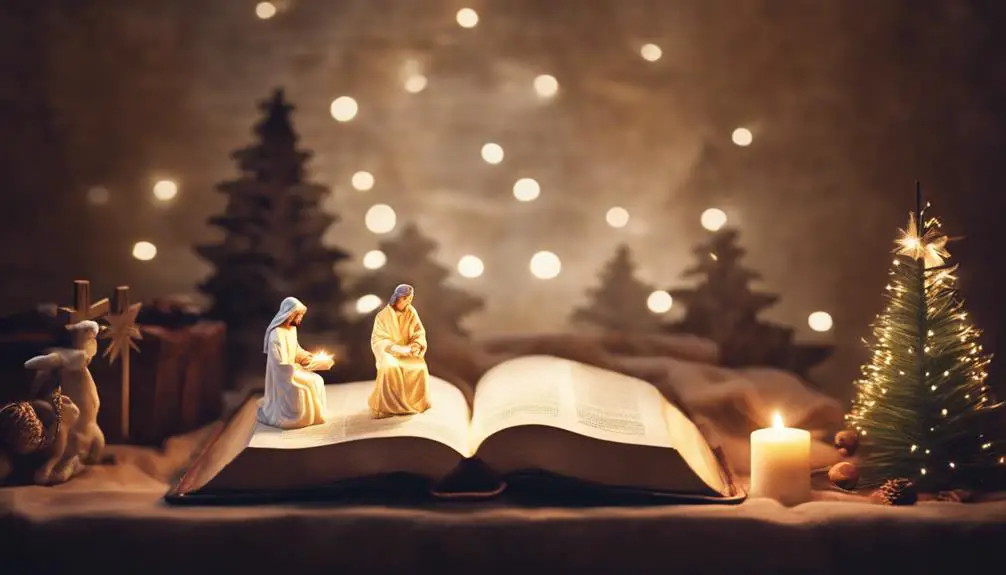
Is Celebrating Christmas a Sin in the Bible
As you know, 'the devil is in the details,' and when it comes to celebrating Christmas, those details matter more than you might think.
You've likely pondered whether decking the halls and exchanging gifts aligns with your faith, considering the Bible doesn't explicitly mention Christmas trees or Santa Claus.
The origins of Christmas traditions and their integration into Christian practice spark a complex debate among believers.
Exploring the biblical references and the amalgamation of pagan influences with Christian adaptation might leave you questioning the place of modern Christmas practices in your life.
Let's navigate this intricate discussion together, uncovering perspectives that could reshape your holiday celebrations.
Key Takeaways
- Christmas isn't explicitly mentioned in the Bible, but its themes align with biblical messages of hope and redemption.
- The Bible contains narratives, such as the Nativity, that support the celebration of Jesus' birth, underpinning Christmas traditions.
- Diverse Christian perspectives exist on Christmas, but debates often focus on its pagan origins rather than outright biblical prohibition.
- Adapting and reinterpreting secular or pagan elements to celebrate Christmas can be seen as a reflection of Christian adaptability, not a sin.
Biblical References to Christmas

Though the Bible doesn't explicitly mention the celebration of Christmas, various scriptures indirectly inform the holiday's underlying themes of birth and redemption. When analyzing biblical references that might relate to Christmas, you're delving into Nativity scripts and what some might call December prophecies. These passages, while not directly referencing the holiday, provide a foundation for the celebration's themes.
The Nativity scripts, found in the Gospels of Matthew and Luke, offer the most direct connection. They recount the birth of Jesus Christ, focusing on the circumstances surrounding His arrival and the fulfillment of Old Testament prophecies. This narrative has become central to Christmas celebrations, symbolizing hope and divine intervention.
Moreover, prophecies in Isaiah, often read in December, foretell the coming of a savior, contributing to the season's anticipation. While these don't mention Christmas by name, their themes resonate with the holiday's focus on redemption and the birth of Christ.
In a scholarly analysis, it's clear that while the Bible doesn't explicitly sanction Christmas, it provides thematic material that supports the holiday's celebration. The focus on Nativity scripts and December prophecies highlights the biblical underpinnings of Christmas themes of hope, birth, and redemption, making a compelling case for its observance from a scriptural standpoint.
The Origins of Christmas Traditions

To understand the origins of Christmas traditions, one must delve into a rich tapestry of historical, religious, and cultural practices that have evolved over centuries. The roots of these traditions stretch back to the ancient celebrations of the winter solstice, a time when societies across the world celebrated the gradual return of sunlight and the promise of spring. This period marked a moment of joy and hope amid the coldest, darkest days of the year.
Among the most influential precursors to Christmas traditions is the Roman Saturnalia festival. Celebrated in honor of Saturn, the god of agriculture, Saturnalia was a time of feasting, role reversals, and the suspension of social norms. It occurred in mid-December and featured decorations of evergreens, gift-giving, and communal celebration, elements that echo in today's Christmas festivities.
These ancient celebrations, deeply intertwined with the cycles of nature and agricultural rites, provided a foundation upon which Christian traditions were later built. By integrating these pre-existing winter solstice celebrations, early Christians could align the message of Christ's birth with universally understood symbols of rebirth and renewal. This strategic incorporation facilitated the widespread acceptance and adaptation of Christmas, molding it into the richly layered holiday we recognize today.
The Debate Among Christians
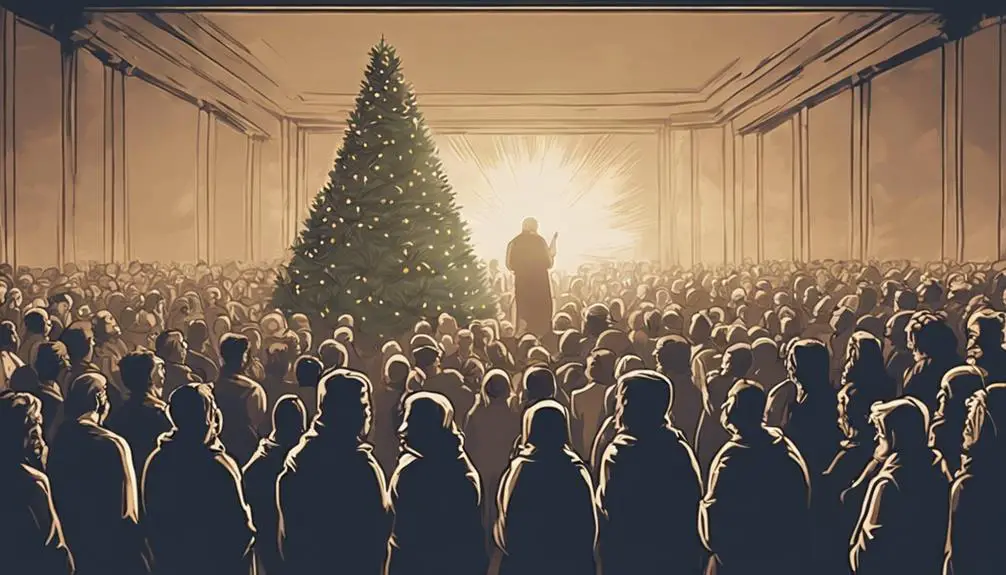
While many embrace the historical and cultural roots of Christmas, a significant debate persists among Christians regarding the holiday's compatibility with biblical teachings. This discourse isn't monolithic and varies greatly, influenced heavily by cultural variations and individual convictions.
To understand the spectrum of views, consider the following points:
- Cultural Variations: Around the globe, Christians celebrate Christmas in myriad ways, influenced by local traditions and historical contexts. Some communities focus on the religious aspects of the holiday, while others incorporate more secular festivities. This diversity often fuels debates on what's considered acceptable or biblical.
- Biblical Interpretation: There's no explicit mention of Christmas in the Bible, leading to diverse interpretations of how or if it should be celebrated. Scholars and theologians offer varying perspectives on the implications of celebrating a holiday with a complex historical genesis.
- Individual Convictions: Ultimately, many argue that the decision to celebrate Christmas should rest on personal conviction. This stance suggests that one's faith and understanding of the Bible should guide their participation in holiday traditions, rather than external mandates or pressures.
Analyzing these elements reveals that the debate among Christians is nuanced, reflecting a broader conversation about faith, tradition, and the interpretation of scripture.
Pagan Influences and Christian Adaptation
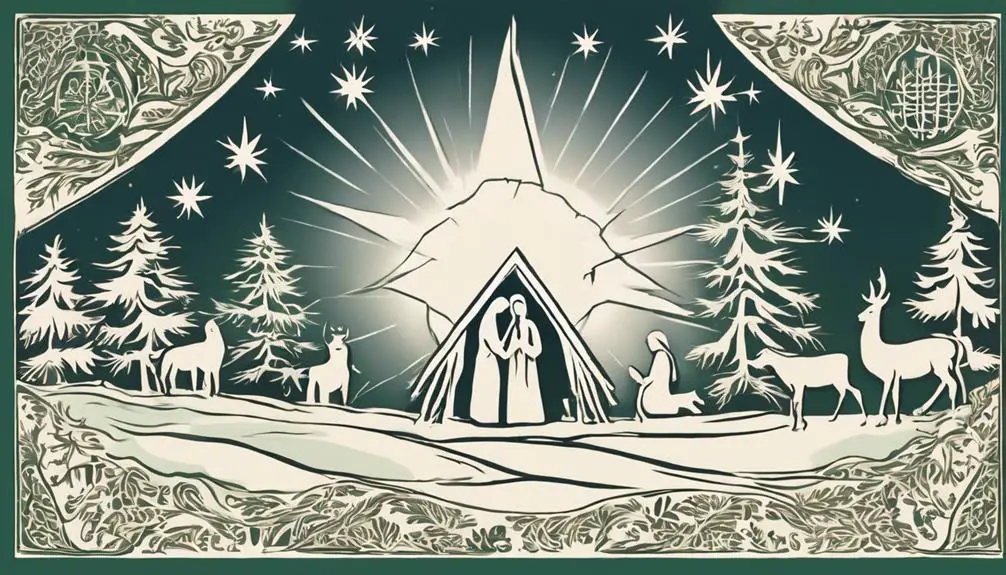
One can't ignore the significant pagan influences on Christmas traditions and how Christians have adapted these elements within their celebrations. The winter solstice, a pivotal pagan observance marking the longest night and the return of longer days, has seamlessly woven its way into Christmas through the adoption of various customs and symbols. This ritual adaptation showcases Christianity's capacity to integrate pre-existing cultural practices, reinterpreting them within a Christian framework.
The transformation of pagan festivities into a celebration of Christ's birth is a prime example of how religious practices can evolve. You'll find that many of the customs associated with Christmas, such as the use of evergreen trees, holly, and mistletoe, have roots in pagan traditions intended to ward off evil spirits or herald the return of spring. Christians have repurposed these symbols, infusing them with new meanings that reflect their faith's values and narratives.
This process of ritual adaptation didn't happen overnight but occurred over centuries as Christianity spread across Europe. It represents a pragmatic approach to conversion, allowing newly Christianized communities to retain aspects of their cultural heritage while embracing a new religious identity. This strategic incorporation of pagan elements into Christian celebrations demonstrates the religion's adaptability and resilience, ensuring its relevance and continuity across diverse cultures and historical periods.
Theological Perspectives on Holiday Celebration
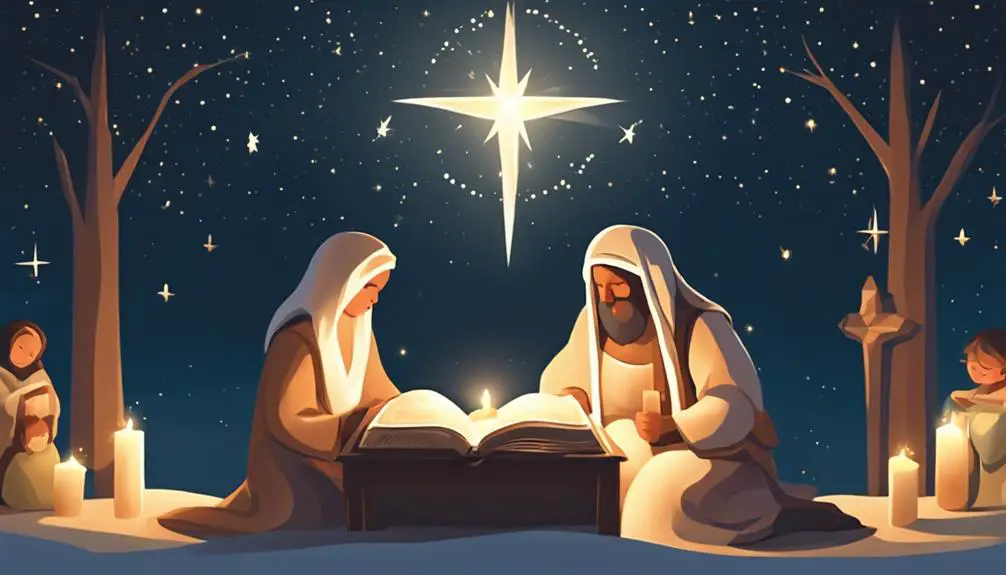
Having explored the adaptation of pagan customs into Christian celebrations, we now turn our attention to the theological perspectives that inform holiday celebrations, particularly the complexities surrounding the observance of Christmas within various Christian traditions. The debate often centers around festival justification and the sacred vs. secular aspects of the holiday.
- Festival Justification: Many theologians argue that festivals like Christmas provide a unique opportunity for the faithful to reflect on the foundational events of Christianity, such as the incarnation of Christ. This perspective views such celebrations as not only permissible but beneficial for spiritual growth.
- Sacred vs. Secular: The challenge for many believers lies in discerning the sacred aspects of Christmas from the secular. This involves a critical evaluation of customs and practices to ensure they align with Christian values and teachings. The question of whether certain secular elements can be redeemed or reinterpreted in a Christian context is a point of contention.
- Diverse Christian Traditions: Different Christian denominations have varied stances on Christmas observance, reflecting broader theological and cultural differences. Some emphasize strict adherence to biblical directives, questioning the festival's origins, while others embrace a more inclusive approach, focusing on the event's spiritual significance.
These perspectives illustrate the complex theological landscape that informs the celebration of holidays like Christmas, navigating the delicate balance between historical tradition and contemporary faith practice.
Navigating Modern Christmas Practices
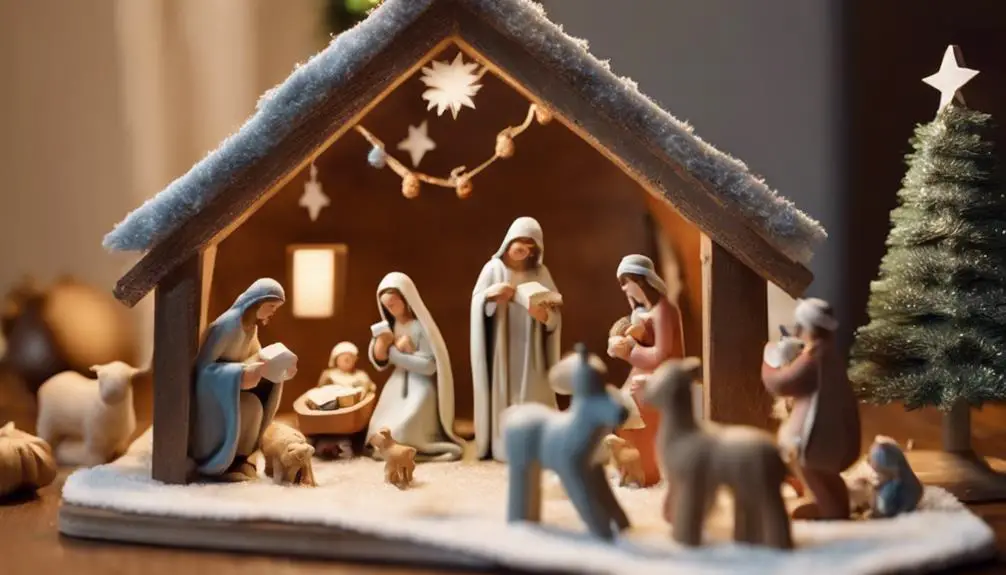
In today's rapidly evolving society, Christians are tasked with the challenge of navigating modern Christmas practices that often blend secular traditions with religious observance. This blending raises questions about the biblically appropriate ways to celebrate, especially considering elements like gift giving and the associated holiday stress.
Gift giving, while a gesture of love and generosity, can sometimes overshadow the spiritual essence of Christmas, leading to materialism. You're encouraged to reflect on the intention behind your gifts, ensuring they embody the spirit of giving that reflects Christ's teachings rather than societal expectations. This approach not only aligns with biblical principles but also mitigates the financial and emotional strain that can accompany extensive gift lists.
Holiday stress, exacerbated by the commercialization of Christmas, poses another challenge. The pressure to create a perfect holiday experience can detract from the celebration's religious significance. You're advised to prioritize spiritual reflection and community during this season, focusing on the birth of Jesus Christ as the core of Christmas. By doing so, you can embrace the joy and peace that the holiday is meant to bring, free from the undue stress that often accompanies modern Christmas practices.
Frequently Asked Questions
How Do Different Christian Denominations Around the World Vary in Their Celebration of Christmas?
You'll find that Christian denominations worldwide show a rich tapestry of diversity in celebrating Christmas, marked by cultural adaptations and liturgical differences.
For instance, the Orthodox Church often observes Christmas on January 7th, due to the Julian calendar, while Catholics might emphasize Midnight Mass.
In contrast, Protestant denominations may focus more on Advent and community services.
Each tradition reflects a unique blend of theology, history, and local customs, enriching the global Christian experience.
Are There Any Biblical Figures or Saints Who Are Specifically Associated With Advocating or Opposing the Celebration of Christmas?
Diving into the heart of Christmas, you'll find no biblical figures directly advocating or opposing its celebration. However, Saint Nicholas lore stands out, embodying the spirit of giving. His historical ties and the Winter Solstice connections enrich the narrative, though not explicitly biblical.
Analyzing these elements, you'll see a blend of tradition and faith, without clear biblical mandates. It's a tapestry woven from history, faith, and folklore, offering a rich scholarly exploration.
How Has the Commercialization of Christmas Impacted the Religious Observance of the Holiday Among Christians?
You've noticed gift inflation and shopping stress increasingly overshadowing the religious essence of Christmas among Christians. This commercialization dilutes the holiday's spiritual significance, making material gifts and financial strain prominent.
While traditions evolve, the essence of Christmas as a time for reflection and religious observance faces challenges. Engaging with the holiday's commercial aspects often leads to a shift away from its foundational religious contemplation and community.
Can Celebrating Christmas With Secular Traditions Still Be Meaningful for Christians Seeking to Maintain Their Religious Focus?
Absolutely, incorporating secular traditions like family gatherings and gift exchange into your Christmas celebration can still hold deep meaning for you as a Christian focusing on your faith. These activities, when approached with intention and reflection, can enhance your spiritual experience, not detract from it.
They offer opportunities for expressing love, gratitude, and the joy of giving, all of which are core Christian values. So, embracing these traditions can enrich, not diminish, your religious observance.
What Role Do Christmas-Related Charitable Acts and Community Service Play in Christian Teachings, and Are They Seen as a Core Part of Holiday Observance?
In Christian teachings, charity and community service during Christmas embody the spirit of giving, reflecting Jesus' teachings. These acts are central to holiday observance, highlighting charity's significance and its community impact.
Conclusion
In conclusion, the Bible doesn't explicitly address the celebration of Christmas, leaving Christians to navigate this terrain through interpretation and tradition.
Consider the case of the Johnson family, who blend their Christian faith with Christmas traditions by focusing on the nativity story and acts of giving. This approach exemplifies how believers can honor their faith while engaging in modern Christmas practices.
Ultimately, the decision to celebrate Christmas rests on individual beliefs and the desire to find a meaningful connection to the holiday's deeper spiritual significance.


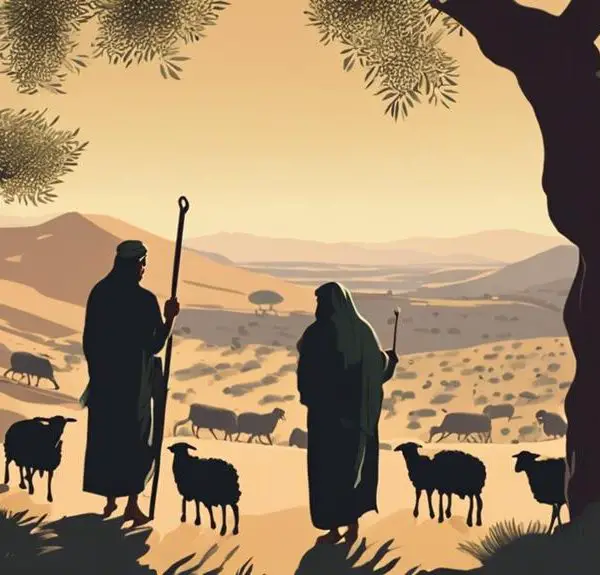
Sign up